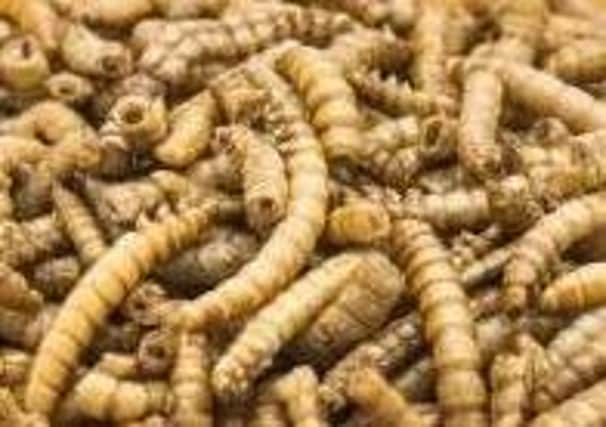Worms approved as safe to eat in the European Union


The European Union agency has given the go ahead for the use of dried yellow mealworm (Tenebrio molitor larva) as a novel food (NF) pursuant to Regulation (EU) 2015/2283.
Yellow mealworm is the larval form of the insect species Tenebrio molitor.
Advertisement
Hide AdAdvertisement
Hide AdSince the regulation took effect three years ago the EFSA has received applications for a range of novel food products including herbal products derived from plants, algae-based foods, and non-indigenous fruits in addition to an array of edible insect varieties.
Ermolaos Ververis, a chemist and food scientist at EFSA, coordinated the first adopted opinion on insects as novel food.
He said: “Insects are complex organisms, which makes characterising the composition of insect-derived food products a challenge. Understanding their microbiology is paramount, considering also that the entire insect is consumed.”
Various insect-derived foodstuffs are often heralded as a source of protein for the diet.
Advertisement
Hide AdAdvertisement
Hide Ad“Formulations from insects may be high in protein, although the true protein levels can be overestimated when the substance chitin, a major component of insects’ exoskeleton, is present. Critically, many food allergies are linked to proteins so we assess whether the consumption of insects could trigger any allergic reactions. These can be caused by an individual’s sensitivity to insect proteins, cross-reactivity with other allergens or residual allergens from insect feed, e.g. gluten.
“It’s challenging work because the quality and availability of data varies, and there is a lot of diversity among insect species.”
Giovanni Sogari, a social and consumer researcher at the University of Parma, stated: “There are cognitive reasons derived from our social and cultural experiences, the so-called ‘yuck factor’, that make the thought of eating insects repellent to many Europeans. With time and exposure such attitudes can change.”
Mario Mazzocchi, an economic statistician and professor at the University of Bologna, said: “There are clear environmental and economic benefits if you substitute traditional sources of animal proteins with those that require less feed, produce less waste and result in fewer greenhouse gas emissions. Lower costs and prices could enhance food security and new demand will open economic opportunities too, but these could also affect existing sectors.”
The worms have now been deemed safe by the EFSA.